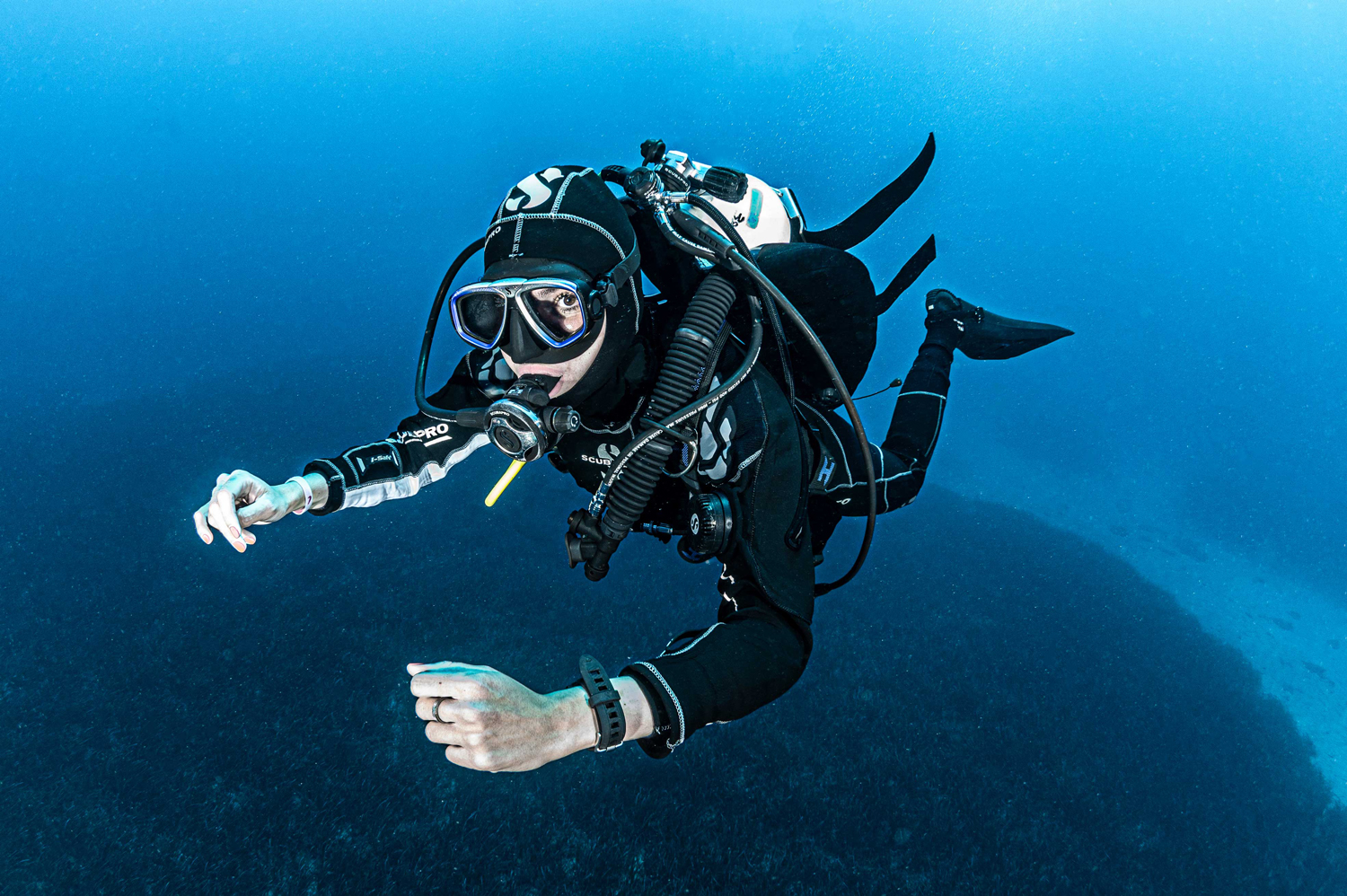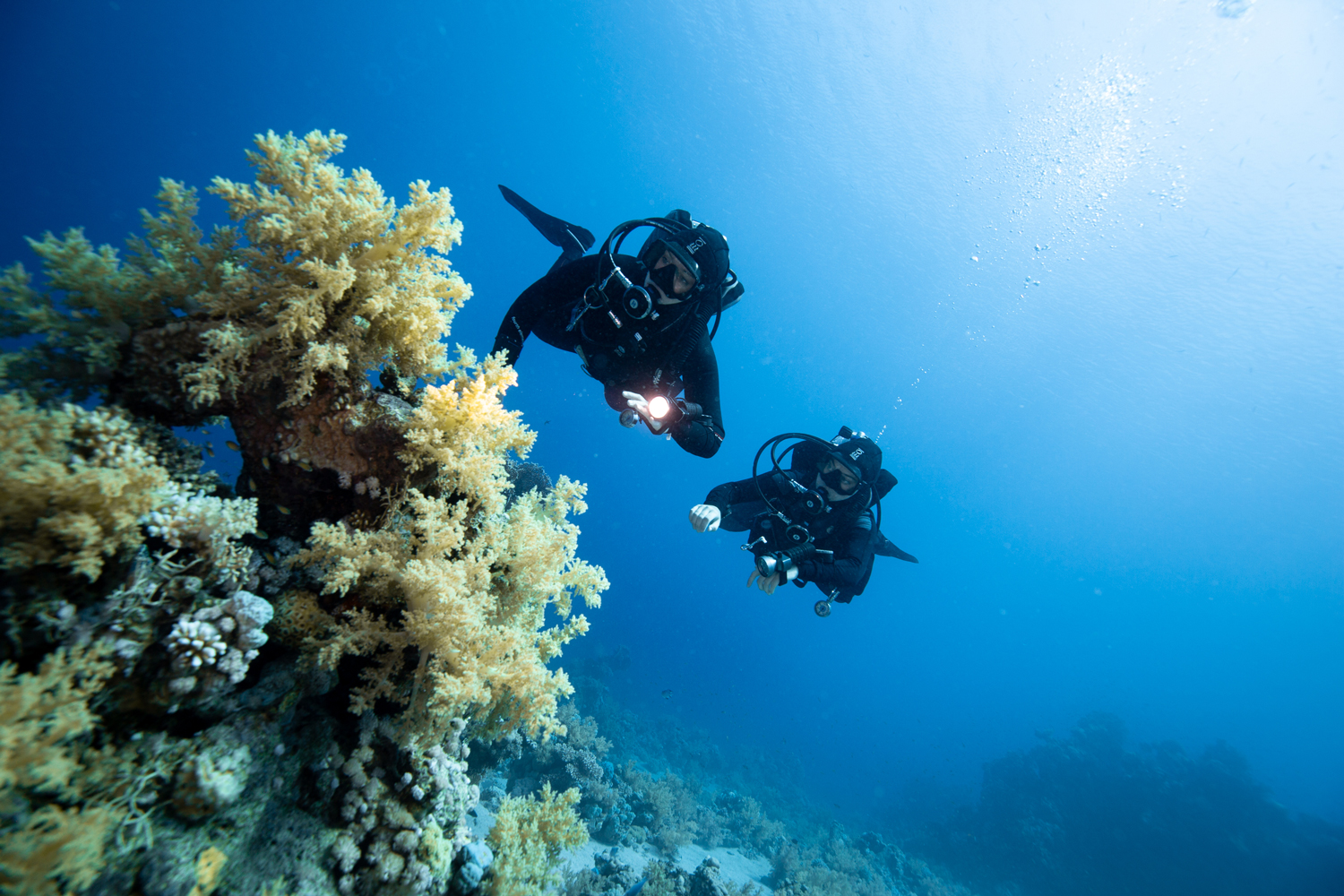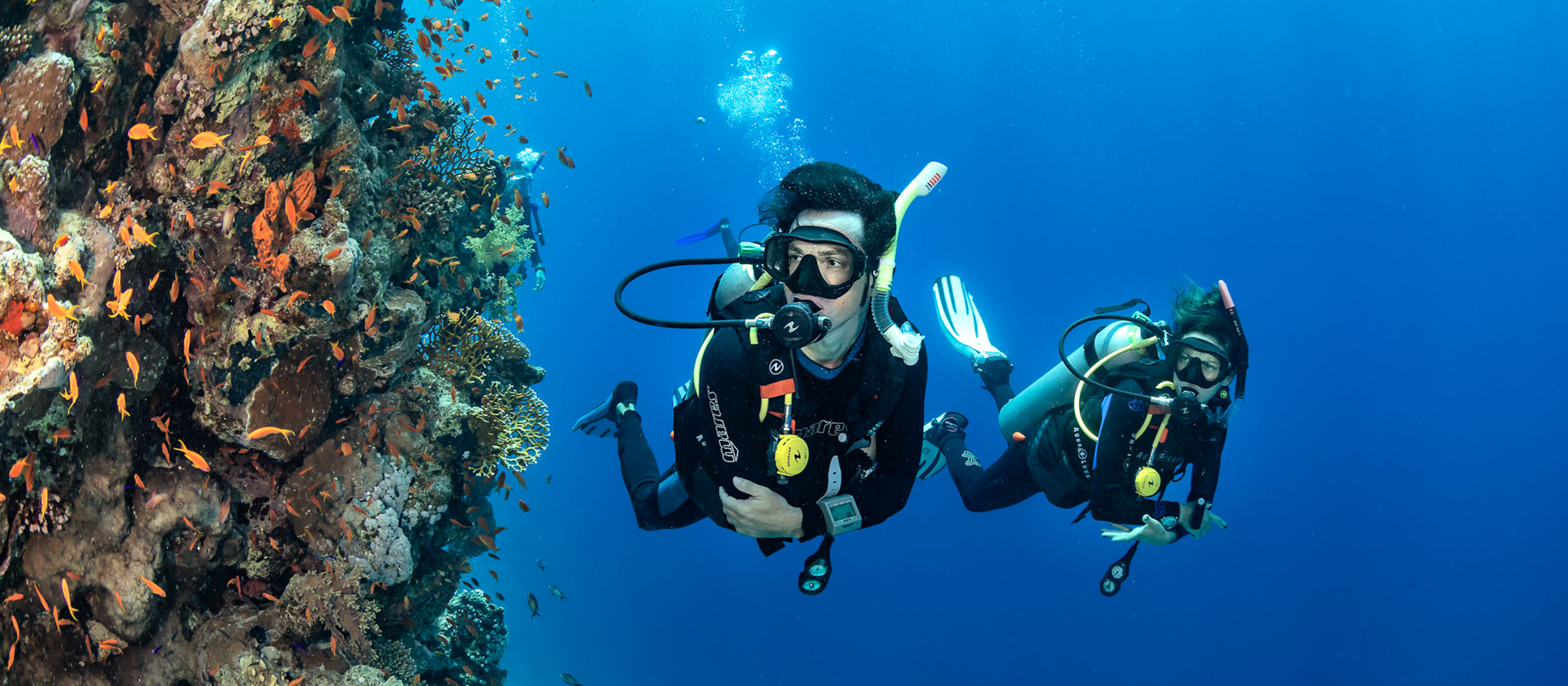Diving inspiration
Going tec… or maybe not?
When you start your diving adventure you are happy to be in the water and develop your skills on a daily basis. However, when you have done a couple of dives you realise there is much more to explore. You see these guys with twin tanks and stages, full of sophisticated equipment and you start feeling like a total beginner. You think you would love to be on their level as only then you will feel like a ‘real’ diver.
However, let’s ask ourselves a question – is recreational diving any inferior to tech diving? Why should we feel worse because we do not want to carry a twin on our back and stages full of trimix? Do we really have to do any ‘techy’ stuff to be a real diver?
My intention is not to discourage anybody from technical diving – quite the opposite, it is a great opportunity to explore and learn. We must bear in mind, however, that technical diving might not be for everybody. It is the same with any other activity – a person who rides a bicycle might not want to learn how to ride a motorbike and be a happy cyclist till the end of their life. These are two different kinds of activities and it is the same for diving – recreational diving and tech diving are just two different types of diving and neither is better than the other.
The worst kind of motivation is peer pressure or ambition to impress others and it might end up in a disaster. That is why you need to think about what really rocks your boat. If you would love to be a tech diver – go for it! But before you start your first course, let’s see some factors that you should take into consideration and think them over.

IT IS HEAVY
I am sure you have seen a tech diver with a twin and two stages. It looks pretty cool but have you ever thought how much it weighs? I am not even talking about physical strength to carry it, which a lot of people can do, but think about the impact that it has on our knees and spine. Even if it is not so heavy in the water, carrying this kind of equipment is strenuous, particularly in hot climates. You need to think if you are capable (and willing) to do it before you call your instructor and enrol for a tech course…
LOTS OF EQUIPMENT
Not only is the equipment heavy, but there is a lot of it and very often the configuration is different from what we use in recreational diving. I always find it fascinating how a tech diver does not get entangled in all the hoses☺. Well, they have their ways and I admire them for it. However I really love my simple backmount configuration and I am not sure I would like to deal with the whole net of hoses, bungees and valves.
LOTS OF TRAINING
Tech diving requires lots of training. If you think you can learn it in a few days, you are mistaken. You will spend lots of time studying the theory and even more time in the water learning the procedures and how to stay completely still for a long time. Are you ready for it? Remember as well that if you do not use it, you lose it, which means if you want to keep your level, you will have to dive quite regularly and consistently train your skills.
RISK
Even if you are highly trained and do everything you can to be safe, the risk is still higher than in recreational diving. You probably heard stories of divers who did everything “right” and still ended up in a recompression chamber. Every dive that requires changes of gases or decompression is more risky by definition. You must take it into account and accept it if you ever want to go tech.

LONG HOURS IN THE WATER
Are you prepared to stay long hours in the water without the possibility to go out when you are doing a long decompression? Even in a drysuit you might get cold and definitely you might get hungry. A deco stop might also get a bit boring after a while. And be sure your drysuit has a pee valve… Generally recreational dives are much shorter as after an hour or so people have used their gas and are ready to go out and have lunch. If you are not prepared to stay in water longer than that, stick to one tank on your back.
COST
This is one of the biggest factors that puts people off tech diving. Even if you are strong enough to carry the equipment and don’t mind a long afternoon in the water, you might not have enough money for it. The cost of equipment is much higher than in recreational diving, you need to take into account the price of gases and, if you want to be better and better, you also need to pay for your training. So now you have to think if you would like a new course or a week diving in the Maldives.
YOUR DIVING BUDDY
Many people do not take this factor into account but let’s think about who you want to dive with. If you have a group of techie buddies then you are the lucky one. But if you want to dive with your kids, are you sure you should take a trimix with you? They want to see a reef and colourful fish at the depth of 15 metres, not spend 5 hours in the water. Diving is a great way to get families or partners together but only if everybody agrees what kind of diving they want to do. If we all go on the reef with one tank, let’s stick to it.

MOTIVATION
This is perhaps the most important question of all – why do you want to go tech? Is it your dream or do you want to impress your friends? Maybe you are a ‘certification collector'? Your motivation to do something like this should always be internal – which means that you want to do it for your own development. If you feel it is something you would like to try – go for it! Maybe you will find it fascinating and become a tech instructor yourself. However if your motivation is to show a new card to your friends and impress them with a photo of you wearing a twinset and stages, maybe it is time to think again?
As you can see, going tech might be a bit more difficult, expensive and time consuming than you think. That is why quite a lot of people are perfectly happy being a recreational diver and can do it for the rest of their life without ever going tech. What is more, recreational diving gives plenty of opportunities to explore and develop as well, as there are so many places to see and so many skills to learn even on a recreational level.
There is no “better” or “worse” diving – there are only different kinds of diving and it is up to any of us to decide which way we want to explore the underwater world. There is nothing wrong with doing what you like and developing your passion in your own way. The only thing that is important is to find this way and have respect for other people who have chosen to do it differently.
About the author
Agnieszka Kostera-Kosterzewska is a Polish diving instructor who lives in Gozo, Malta and works in a diving centre. She is also a translator working for PADI and DAN.


